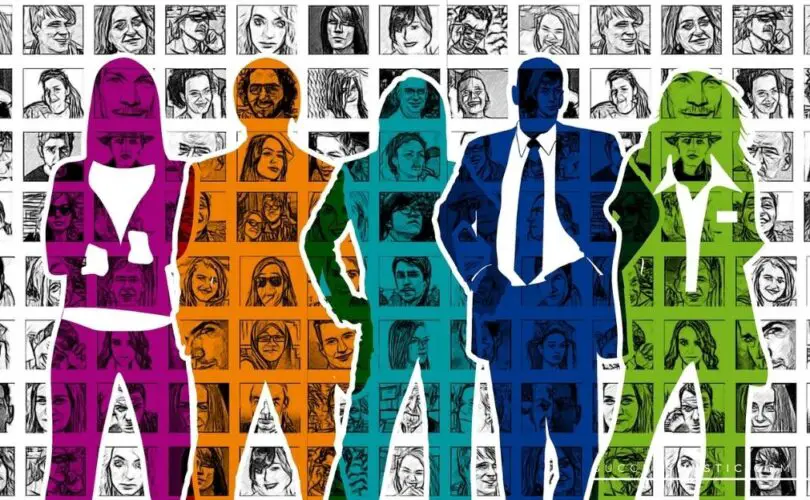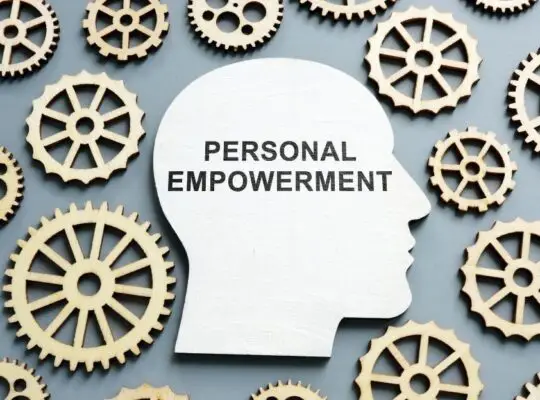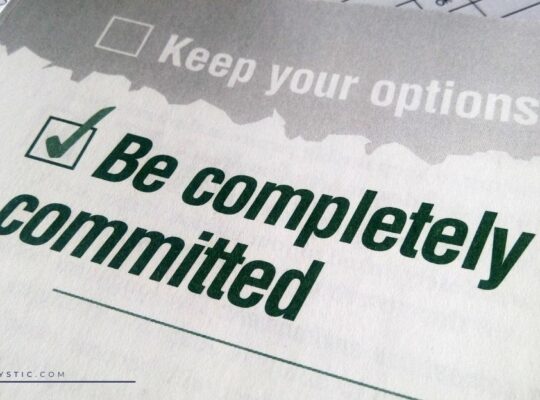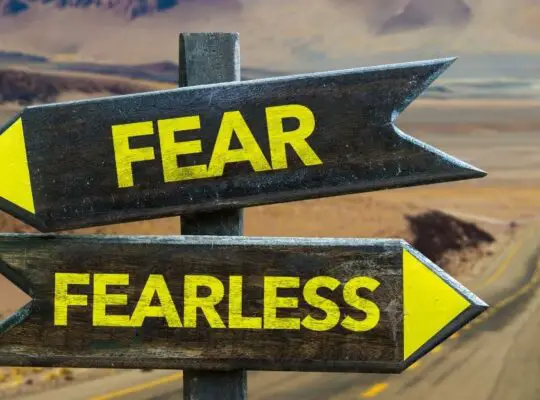In this article: It’s time to improve your social and professional life and yourself by improving your people skills.
The Social Creatures
You interact with other human beings on a daily basis. Unless you spend the entire day indoors, it would be impossible to avoid running into someone whom we have to have some type of interaction with socially, whether it be through body language, verbally or otherwise.
Of course, even staying indoors doesn’t protect you from social interaction, thanks to the internet and smartphones. As social creatures, humans crave that interaction with others and it’s something that all of us want. If you don’t understand how to interact and communicate with others, then it will be difficult for you to satiate that craving and advance your goals and ambitions.
So, as an innately social creature, how best can you interact and communicate with others?
Your people skills can make or break your career, relationships, friendships, and more importantly, they can break you (or others).
If you have realized your interactions aren’t serving you in the best way possible, how can you advance your voice loudly enough, while being respectful? How can you make your feelings known without alienating others?
That’s where your people skills will come to the fore. They play a vital role in ensuring that you get what you want. It sounds bad, but really, everyone walks into certain interactions and conversations with an expectation of how it will benefit them. It doesn’t matter who you are, our desires, selfish or not, drive us all.
I want you to think of it like this – a chef needs to have an understanding of food safety, as well as flavors and techniques. An accountant can brag math as a strength, while a doctor has to constantly keep up with the latest research.
They all have their own strengths, unique to the job that they do. Guess what skill every single one of them has to have in order to be effective in their role? People skills. Have you ever visited a doctor once and never returned, complaining about their bedside manner? Someone with no people skills is an immediate turnoff. That’s just the reality.
That being said, what exactly do we mean when we talk about people skills? Generally speaking, the ability to communicate, listen, relate and empathize with others, both professionally and personally… are all key aspects of your people skills.
If you were to broaden the scope, one could say that being willing to work with others to achieve a common good and your ability to solve problems could also fall under this umbrella.
The Hallmarks of People Skills
- Communication Skills
Your ability to communicate is central to your people skills. To deal with people, you must have the ability to absorb information, clarify what has been said and actively participate in exchanges, whether verbal or written. There are skills that we develop through practice. You can practice active listening by focusing on what people are saying, rather than thinking about what you will say next. You have to carefully choose your words, clarify when necessary, and know when to reiterate key points.
- Empathy
It’s much easier to have an understanding of what they’re going through when you put yourself in their shoes. You can get a better sense of what they’re thinking and feeling when you look at things from their perspective. This is a powerful component of your people skills. Your empathy will allow you to offer attention and a sympathetic ear to others. This is advantageous to just about every industry, from hospitality to education, and healthcare to family law.
- Conflict Resolution
Mediation won’t just serve you well in a workplace environment, it’s something that will benefit your home-life as well. We often have to resolve conflicts in our daily lives. That means sitting down to listen to specific disputes and doing so without judgment. It is only then you will be able to reach a compromise. This allows you to keep the peace, at home, at work, and in your own relationships and friendships.
- Patience
It’s a virtue. It’s a skill that is valuable in every area of your life. Patience requires an even temper, the ability to explain and repeat information in a controlled way… even if that means you’re in a stressful, frustrating situation. Anyone who has worked a day in customer service knows the value of patience.
- Tolerance
The world is a wonderful and diverse place. Your workplace may be brimming with people from all different walks of life. Tolerance and understanding is a key skill for your people skills. You have to accept people’s differences, even if you don’t agree with them. This is a valuable skill in life and at work.
Why People Skills Are Important
People skills are a necessary party of life, and that starts from a young age. As children, our people skills help us navigate the first day of school, making friends, and dealing with adults. That need for people skills doesn’t go away, it only gets more important as we get older.
Our ability to make (and keep) friends, find a job (and keep it), enjoy romantic relationships, and build strong family ties… all of that relies on your people skills. Everything in your life is based upon the foundation of your people skills.
As noted above, it starts in childhood. Children observe the interactions of their parents and replicate that with their peers and siblings. If a child struggles to socialize in basic settings, it may indicate that they’re in for a tough road in their adult years.
Early social problems can make it incredibly difficult to make friends, which can lead to further exclusion that continues into adulthood. Children need to feel accepted, and rejection, or the idea of it, can impact both happiness and confidence. That doesn’t just go away either, it’s something that shapes your adult self and will continue into adulthood.
Your personal skills again come into play when it comes to job hunting. It doesn’t matter how much education you have had or even what level of experience you can brag. If you have no people skills, it’s unlikely you will advance beyond the initial interview stage. It isn’t just that you are unable to communicate your ideas to the interviewer, they consider how you would relate to your colleagues. People skills are important in an interview because of what it means beyond the interview.
Likewise, your people skills will remain a significant part of your working life if you wish to advance your career. This is especially true of anyone who has designs on management positions. Often, the biggest failures of businesses are down to incompetent managers unable to effectively communicate with their teams. The ability to communicate, motivate, and empathize are key people skills. The lack of these skills will demotivate a team and can cripple the workplace.
In your intimate relationships, the people skills you employ are more complex. Your need for people skills is greater because you are constantly in communication with someone, you have to know yourself really well, but also understand (and accept) their deepest wishes, wants, desires, and traits.
If you cannot master these people skills, you will experience loneliness in your adult life. This is common in adults who struggle to initiate relationships or cannot let go of bad relationships.
Your people skills will also play a vital role in raising children. You have to pass your people skills onto them and if it’s something that you struggle with, this may imprint onto them. You have to be able to interact with them on their level to ensure they understand the importance of interacting with others, and also how to do so.
13 Ways To Improve Your People Skills
So, how can you work to improve your people skills? Let’s take a look!
1| Smile – how does this improve your people skills? Well, it puts people at ease and makes them feel more welcome, which is ideal for social situations. Beyond that, though, think about how often you smile when you’re in conversation with someone.
Now, think about how easily your day improves when someone offers you a genuine smile, whether it’s a stranger you walk past or someone you know. It makes you feel good. It makes you feel noticed… accepted.
It’s given you a massive boost in your mood and made you more productive, more open to conversation, quicker to laugh. All of that, from one simple smile. You can do this for others and for yourself by smiling more often. Practice this when you next have a conversation with someone… just be sure that it’s appropriate to smile at that moment.
2| Maintain Eye Contact – eye contact lets others know that you’re engaged in the conversation, you are focused on them and interested in what they have to say. It can feel intimidating to make eye contact, but it’s also confidence boosting and empowering.
You will be taken more seriously when you force yourself to maintain eye contact. You can learn a lot about a person when you look directly into their eyes during conversation, there’s something deep and bonding about it. Just remember to break eye contact so it doesn’t come across as an attempt to intimidate.
3| Use Names – humans love the sound of their own name. We are a selfish breed, it’s just a fact, so, the sound of our name… well, it’s quite literally music to our ears. An important people skill is the ability to retain and recall names in order to pepper them into conversation as frequently as possible. Think about how you feel when you meet someone, and they remember your name. Think about how bad you feel when you cannot remember someone else’s name.
If this is something that you struggle with, consider keeping a journal of names to job your memory. Or, repeat their name in your head after they introduce themselves. It’s also wise to respond with their name. For example: “Hi, my name is Warren.” “It’s nice to meet you, Warren, my name is Elizabeth.” You have heard the name, repeated it back, and imprinted it into your mind along with their face. When you use their name in conversation you capture their attention, and it provides both parties with a confidence boost.
4| Genuine Compliments – children respond to rewards and bribery that involve candy. Adults like candy, sure, but they also love compliments. Even if we act shy about a compliment, we love it, we crave it, and when we get one, we eat it up (even if it’s secretly). Why shouldn’t we complement each other openly, freely, and genuinely? The best compliments are the unexpected, but sincere ones. It’s obvious when they’re forced. If you overdo it, you run the risk of someone shutting down on you. If you force it, you run the risk of them withdrawing from the conversation.
Practice your compliment-giving skills in your next social gathering. Think about it ahead of time to consider what you really appreciate about the people who will be present. Go out of your way to offer at least one of them a sincere compliment. It will make conversation easier, get their attention, and they will buy into you.
5| Active Listening – are you a good listener? You’re probably not as good at it as you think you are. It’s something that most of us struggle with because we’re desperate to speak our own minds, we want to interrupt, interject, and hear the sound of our own voice.
We simply respond with noises that will humor the other person. It becomes apparent that you’re not listening when you look up and realize they are awaiting your response. We tend to swing from one extreme to the other, wanting to interrupt or not caring a jot. You know what it feels like to have this done to you, yet you do it to others regardless.
Active listening is an important people skill. It shows others that you care about what they have to say, that you are interested in their opinion, and that they are worth your time. If you spend the majority of their speaking time, waiting to speak and formulating your response, it’s obvious. You look insincere. It makes a conversation with you less desirable. Next time, listen, respond with questions about what they are saying, and show genuine interest.
6| Ask Questions – speaking of asking questions… your questions should be relevant to the conversation, they should show your interest in the conversation, and also be well thought out. It does two different jobs. The first is, it feeds the subconscious desire we have to talk about ourselves. You ask questions and the other person benefits. The second is that it shows you are really listening, which lets the other person know you’re sincere. It also makes for smoother conversation transitions and builds trust.
7| You and I Both – you probably already know it’s important to use I statements when you’re expressing your feelings. It’s more effective than using you, which can come across as accusatory. In this case, it’s about focusing less on I and putting it on you instead. Except, it’s about allowing others the space to talk about themselves.
It doesn’t matter how interesting you are, when you’re having a conversation with someone, they want their opportunity to talk about themselves, too. This is a delicate balance. You want to share yourself, but you want the other person to do the same. The truth is that good people skills means knowing when to shut up and let others talk about themselves. It’s about listening to the other person and learning about them.
8| Body Language – your body language has to match the words you are speaking. So, an important part of improving your people skills is becoming aware of both your own body language and that of others. Don’t stare off into the distance, tap your fingers or cross your legs. Be engaged by nodding while they speak, smiling, and facing yourself towards them. Often, your body language speaks much louder than your words do.
9| No Arguments Here – aggression is definitely not a people skill. That means body language, tone, and the words that you choose to use. No one enjoys spending time with people who are mean and rude. When you raise your voice, the other person will raise theirs, and then suddenly, your aggression has caused an argument that didn’t need to happen. The situation can quickly turn sour. This is something you should look to curtail in your interactions. Think about your tone.
10| Develop Your Emotional Intelligence – emotional intelligence is what keeps you aware and in control of your emotions. Sharpening this will increase your confidence, help you balance your emotions, and improve your people skills. You have to remember that we all come from different experiences and face different challenges. Your emotional intelligence will guide you through difficult situations. For example, it’s your emotional intelligence that tells you it’s not appropriate to tell someone with depression to just get over it or get on with it. It allows you to recognize when you are under extreme stress or others are. All of that is important for improving your people skills.
11| Meet New People – the best thing about meeting new people is that it will improve your emotional intelligence and broaden your horizons. So, when you meet new people make sure to remember the tips above, use your body language, listen carefully, and be aware of your surroundings.
12| Maintain Relationships – good relationships are confidence boosting, they make life happier and more rewarding. Be aware of the people in your life and work to maintain those relationships. Maintaining relationships can be just as difficult as forging new ones and this is an important part of improving your people skills.
13| Let’s End It Here – this is really important. Of course, it’s all important, but this point… it’s vital. End every interaction on a good note. If you use the tips above to improve your people skills, then you will find it’s easy to end it on a good note. You have paid attention to your body language, listened, extended empathy, used their name, complimented them, smiled… it’s all part of improving your people skills.
More importantly, it’s going to leave a lasting impression on the people you have interacted with, whether you have met them before or not. You want people to walk away from an interaction with you feeling happy, confident, and good about themselves. Finishing on a positive note can also override any prior awkwardness that you may have experienced during the interaction.
Final Thoughts
Where would you be in life without the people skills that you currently have? It’s a scary question when you think about how important they really are to your daily life. You would never have gotten that first date with your partner.
You likely would have struggled to secure a job or make friends. Having said that, how much room for improvement is there with regards to your people skills?
Have you made any effort to advance those skills or have you remained static?
Have you advanced your career in the way that you have wanted?
Are your relationships as strong as you wish they were?
If the answer to either of those questions is no, then it may be time for you to take a long, hard look at your people skills.
Put the advice above into action and watch as your life improves. Improving your people skills doesn’t need to be a difficult or challenging experience, with the tips above you can start making changes to how you interact with others right now.
Put some of this advice into action the next time you strike up a conversation, whether it’s at the water cooler or at home with your partner or children. You can exercise these tips anywhere and everywhere.







